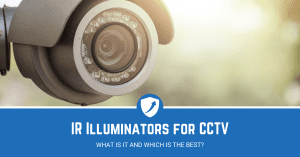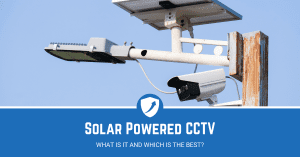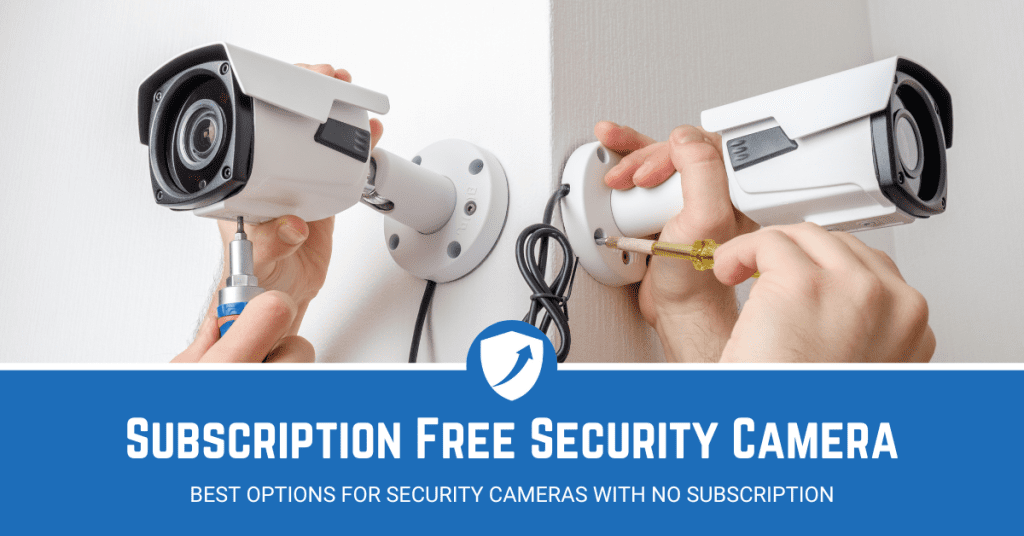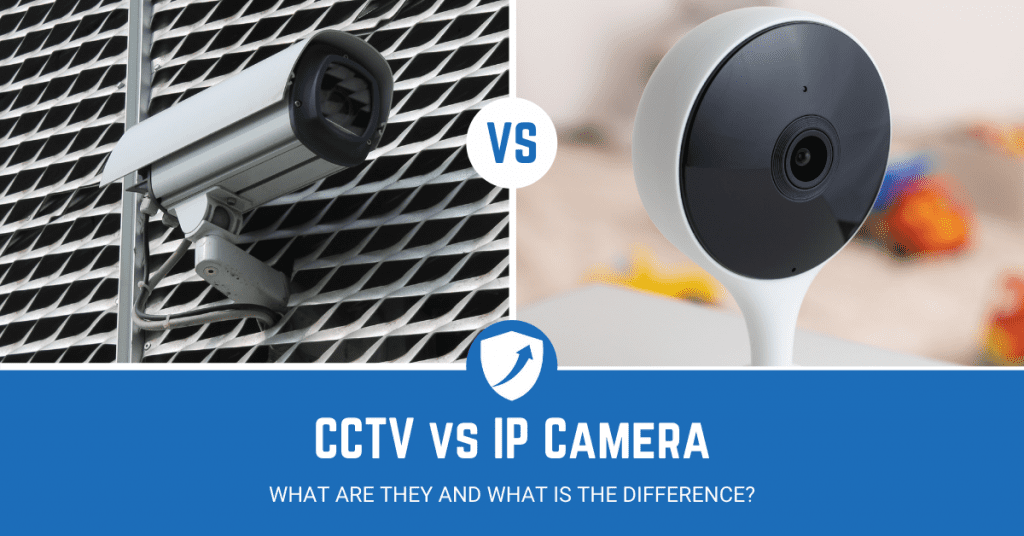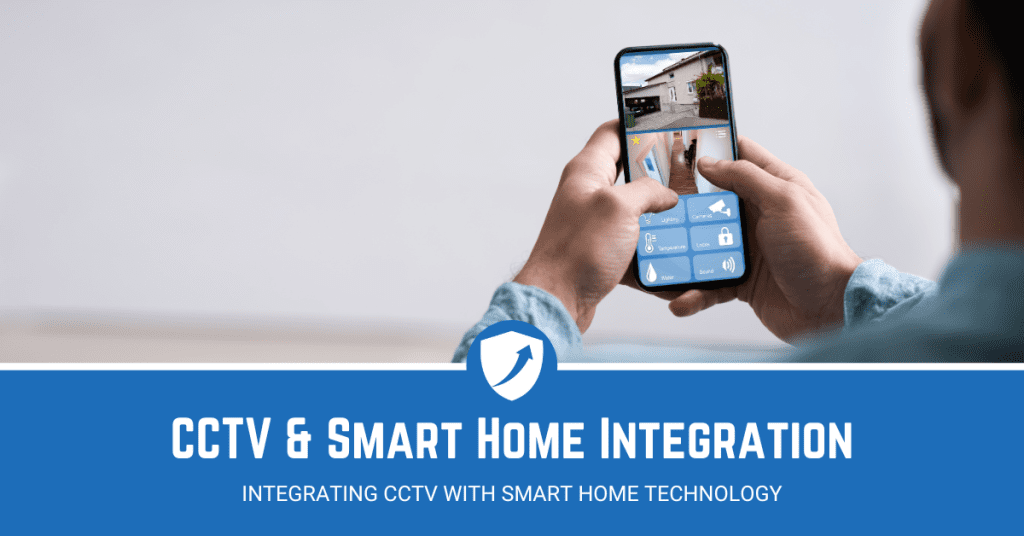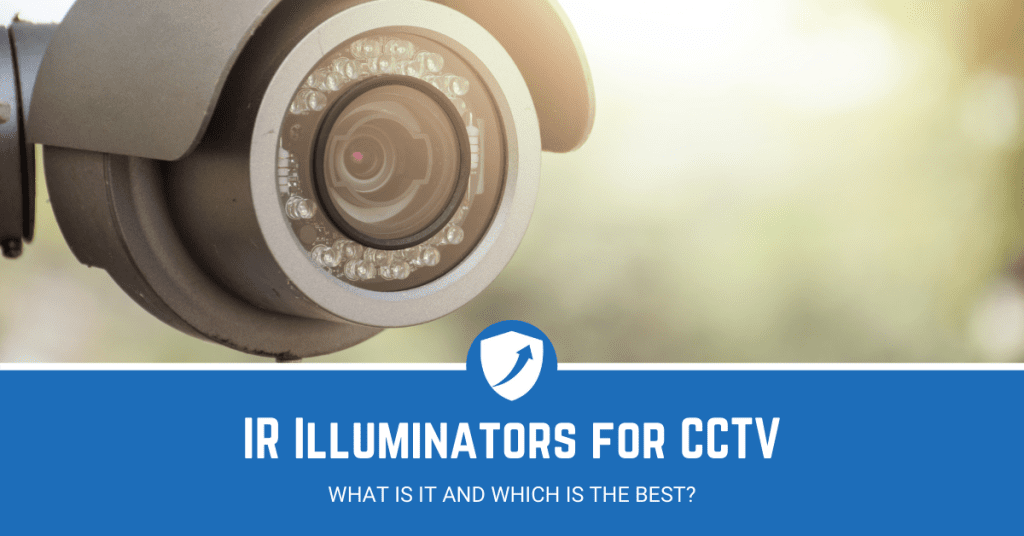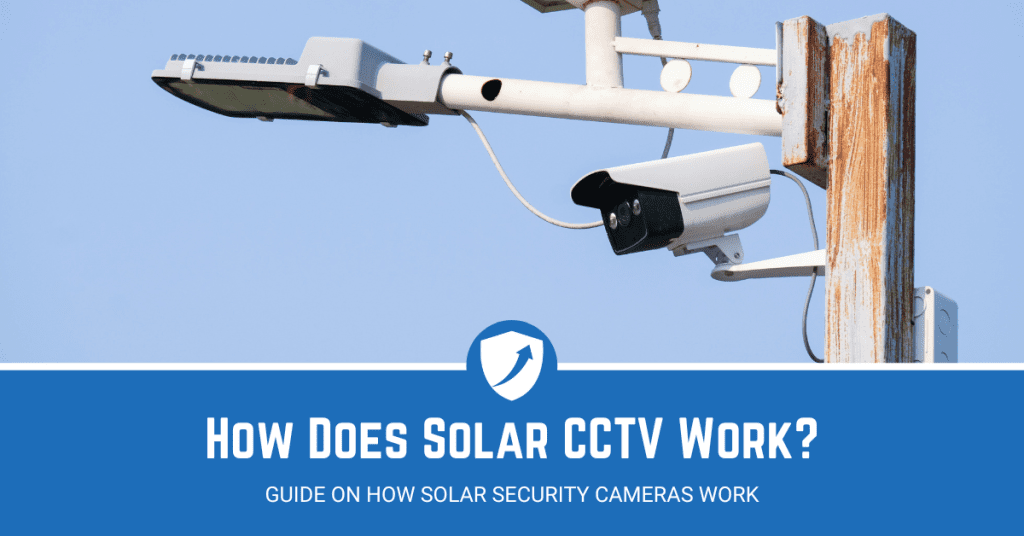When you hear the acronym ‘CCTV’, many things probably come to mind, but they are probably centred around CCTV cameras and not how they connect to your system.
Understanding all the elements that make up a CCTV system can be complex, but we are aiming to break down one of these today and explore cables for CCTV.
You may not have ever spent any time considering what cables are used for Closed Circuit Television, which is exactly why we are giving this crash course guide and reviews of some of the options.
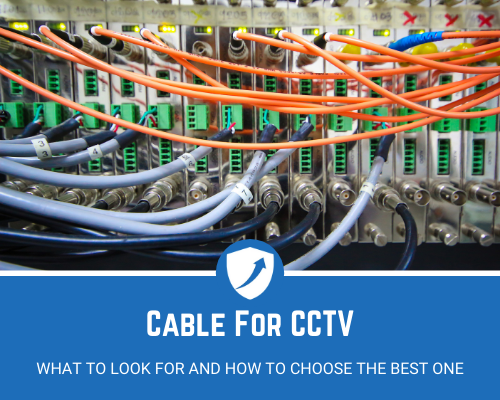
In this blog, we are going to look at Cables for CCTV, the different types, and provide a quick review for the most popular type of CCTV cables – Coaxial Cables.
Overall #1 Pick Coaxial Cable for CCTV
Deciding on a cable to be our number one pick was a little harder than selecting a camera for instance, as there is not a huge variance in what a CCTV cable does.
Despite this, there are definitely some nuances in the industry and ways to find the best cable for CCTV. We took it on ourselves to do some research around the most widely used cable type: Coaxial Cables.
Without further ado, our #1 pick for Cable for CCTV is – SANNCE 30M Coax Cable
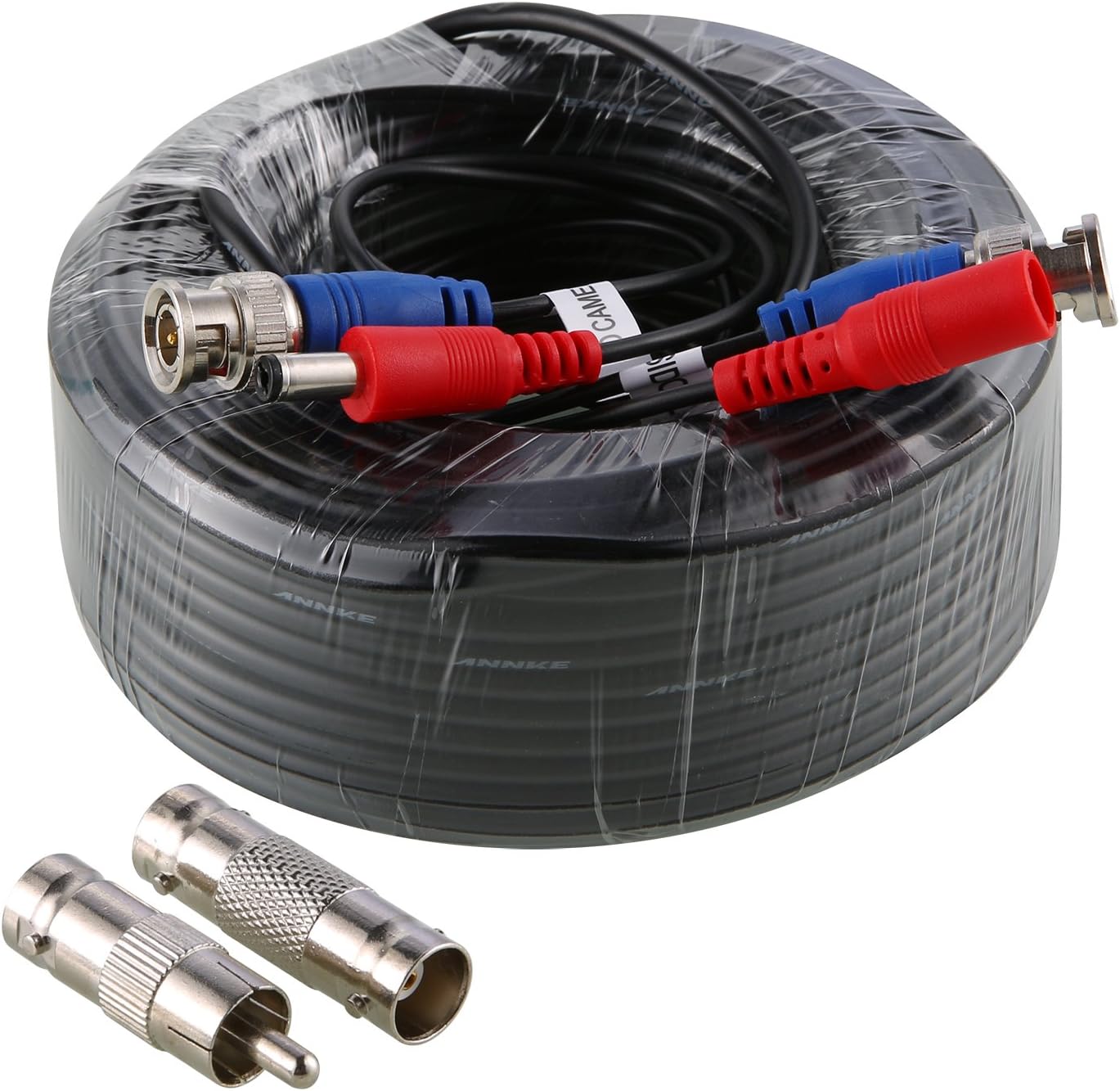
We have chosen this Coax CCTV cable for several reasons, which we will briefly cover. Firstly, Sannce is very popular in the CCTV industry and has a wide variety of cameras and CCTV equipment available.
With the addition of the cable being designed for CCTV usage, paired with the great price and broadly positive reviews for the product, it was an easy choice.
Obviously, we know that every set-up is unique and you may be on the market for a different cable, so we have selected a handful of other options too.
In this article, we are going to briefly cover the following topics and shed some light on cables for CCTV:
- Best Cable for CCTV
- CCTV Cable Basics
- How CCTV Cables Work
- Finding the Best Cables
- Reviews – Best Cables for CCTV
- Summary – CCTV Cables
What's in this Guide?
Our Top Cables for CCTV
SANNCE 30M Coax Cable (Our Top Pick)
Ancable 0.5M Coaxial Cable (Best Budget)
MainCore 15m Coax Cable (Best for Medium Distance)
Casperi 30M Coaxial Cable (Best for Longer Distance)
What is a Cable for CCTV?
A cable for CCTV is the way that cameras are connected to the rest of the CCTV system. A cable can also refer to how the video recorder is connected to a CCTV monitor.
In basic terms, it is how the various elements of the CCTV system are linked with each other, either the front end via the cameras, or the back end via the video recorder.
There are a few varieties of cables for CCTV, which we will look at in the next section.
Different Types of Cables for CCTV
As you can probably imagine, with a system that has been around since the 40s there are a lot of different connection types and cables that can be used for CCTV.
With this in mind, we are going to quickly cover some of the types of cables for CCTV. Two of these, Coaxial and Power Over Ethernet, are much more common and you are likely to come across them the most often.
Coaxial Cables
You may have heard of these outside of a CCTV setting as they are often used by TV and cable companies to connect their devices. Coaxial Cables are one of the most widely used cables for CCTV.
Coaxial or Coax Cables are incredibly versatile, durable and remain highly reliable over large distances, so shot to popularity and stayed there.
Coax cables are how the camera’s footage is connected to the rest of the CCTV system. Think of them as a data transfer cable, the cameras still need a power cable (depending on the model).
Siamese Cables
One of the lesser used options in CCTV systems, as the name suggests, a Siamese Cable is two cables connected up until a certain point where they split off.
Siamese Cables for CCTV are Coaxial Cables with power wires, meaning that both the raw video footage and power for the cameras comes through these cables.
They are designed to allow the cameras to be further from their power source, which is popular for outdoor usage.
Power Over Ethernet Cables
POE or Power Over Ethernet have become widely popular, especially in recent years. They allow for one cable to supply both power and data transfer, effectively halving the amount of cables you need connected to your cameras.
POE CCTV cables are commonly used by companies who are installing their first CCTV system due to their ease of use and simplicity.
Optical Fiber Cables
If you think this sounds familiar, you would be correct, this is what a lot of modern internet providers use to supply your connection. Optical Fiber or Optic ‘Fibre’ cables are a form of high-speed cable that transmits data and light with a glass design.
Most optical fiber cables will work in pairs, housed within a larger outer body, one for transmitting data and the other for receiving it. This often makes them a thicker cable due to the two sets of wires within.
HDMI and Additional Connection Cables
Technically speaking, these fall under a separate category, but we would be remiss not to cover them in a section covering CCTV cables.
HDMI and similar cables are used to connect the DVR or NVR to a CCTV monitor, so are part of the other half of a CCTV system. In this article, we are focusing on the cables from the cameras to the video recorders, or the front half of the system.
How Does a Cable for CCTV Work?
As you can imagine, a cable for CCTV works exactly the same as any other cable, it is a means of transferring data and or power, and connecting two parts of a system.
As we explored in the previous section, cables for CCTV come in all shapes and sizes, but effectively, they all work the same way.
The CCTV cables connect two points of your CCTV system allowing for the two devices to communicate with each other and transfer power and or data.
What Do You Look for in the Best Cables for CCTV?
Connection – different CCTV setups will have different connection ports or ways they connect to the NVR or DVR and your various cameras. Ensure you find the one that works with your devices, i.e. if you need HDMI buy an HDMI cable.
Price – due to the vast amount of options available on the market, it is not hard to find a good price. With this in mind, it is never a good idea to go too cheap on your cables for CCTV, you do not want to compromise your security to shave off some cost.
Warranty – finding products that are high quality is always something you should consider, but there will often be things outside of your control. So, keep your receipts and check the warranty on your cables.
Fit – when you are looking for a cable ensure that you pick one that is designed for CCTV usage, this will often be a more robust or better compatible cable than others on offer.
Length – one of the most important things you need to remember when selecting a cable for CCTV is the length. Ensure you know how much you need, at least roughly, to not get the wrong length.
Best Coaxial Cable for CCTV Reviewed
As with anything in the security and CCTV industry, there are a lot of options and ways you can customise your surveillance systems and create a security setup that works for you.
With this being said, we are going to cover four of the best cables for CCTV currently available and easily purchasable. These are Coaxial cables for CCTV that will work for almost every business need.
Obviously, do your own research too, and ensure you are picking a cable that is compatible with your cameras and system you are planning on installing.
SANNCE 30M Coax Cable (Our Top Pick)
Sannce have built themselves as one of the top players in the small business and private CCTV security industry and create a whole range of products and devices around CCTV.
This cable is no exception to the rule, and does exactly what it says on the tin. It is durable enough to be used indoors and outdoors and reliable enough to ensure you do not lose picture quality.
If you are on the market for a good price and versatile cable for CCTV then look no further, this Sannce 30m CCTV cable will do what you need it to.

| Pros (+) | Cons (-) |
| + Professional grade CCTV cable + Well established brand with good track record + Compatible with lots of cameras + 30m allowing for flexible installation | – Cable may be too long for smaller setups |
Ancable 0.5M Coaxial Cable (Best Budget)
When it comes to cables for CCTV, there is very little that separates the high end from the low end, which means there is rarely a huge variance in price.
As we know in the security industry, cheaper is not always better, however, this budget friendly option for a CCTV cable is reliable and gives you exactly what you need.
One of the biggest factors to consider when looking at cables is actually the length, as you do not want a cable that is either too long or two short. This is why the Ancable range is great; they have everything from 0.5 to 10m.

| Pros (+) | Cons (-) |
| + Various sizes and budget options in each + Struggle to beat the price at 0.5M + Gold plated connectors for better connection | – Could be too short depending on the installation |
MainCore 15m Coax Cable (Best for Medium Distance)
MainCore’s Coax Cable is another reliable and sturdy option if you are shopping for short to medium distance cables for CCTV. This is a BNC cable, which in short is a form of connector for CCTV and Coaxial cables.
They are renowned for being one of the most secure types of Coaxial Cables for CCTV and are a good choice if you are on the market.
With the variety of lengths that MainCore offers, you are likely to find whatever size you need for your short or medium camera setups.

| Pros (+) | Cons (-) |
| + Comes in a range of sizes + High quality BNC cable + Competitive price for different lengths | – Regular connectors |
Casperi 30M Coaxial Cable (Best for Longer Distance)
Finding a cable that is reliable over longer distances can be tricky, however, this Casperi 30M cable is professional grade and provides low static, interference and noise.
The BNC connectors ensure that you get a high-quality seal and connection to and from your cameras. The Coaxial cable can act as a plug and play option too.
This CCTV cable is flexible and versatile, so you will be able to use it indoors or outdoors due to its weatherproofing and durability.

| Pros (+) | Cons (-) |
| + Pure Copper material cable (higher quality) + Weatherproof and durable for indoor or outdoor usage + Low interference and noise (static) + Range between 5 and 40 metres | – Shortest option is 5M which may be too long |
Final Thoughts on Cables for CCTV
By now, you should have a better grasp on what cables for CCTV are all about, the different options you have, and a quick review of some of the best options on the market.
Closed Circuit Television can be a daunting topic, but it really does not have to be. Hopefully, now you are armed with the knowledge to find yourself a good cable for CCTV and set-up your system.
If you are interested in the next step and installing CCTV cables, check out one of our previous blogs that will run you through the whole process step by step.



